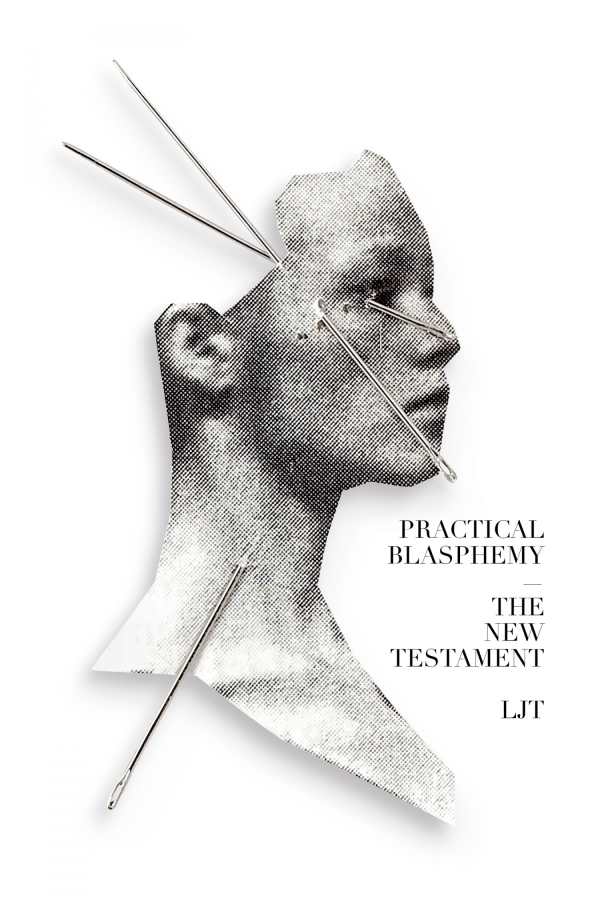
Practical Blasphemy
The New Testament
What happens when a suicide attempt fails? For Amelia, a psychiatric patient whose internal playlist and warring voices besiege her, it leads to three weeks on the ward. LJT’s fictionalized memoir Practical Blasphemy portrays bipolar disorder in sensitive, harrowing technicolor.
Entering Amelia’s troubled mind with grisly realism, the book takes off when Amelia is rescued by EMTs and is hospitalized for her safety. Intense, brief chapters chronicle her initial resistance to group therapy and other patients. These include Charlie, who’s bulimic; Lucia, a woman battling religious fervor; and Marvin, calm but manic-depressive, who’s checked himself in to manage his medication. Though some are written large, their outbursts don’t turn into spectacles. Mental illness is treated with frank empathy.
The book’s visceral immersion in Amelia’s viewpoint prevents hindsight, but there are enough clues about her past to suggest the contrasts to when she was well. In the absence of any definable, triggering event, her brain disorder is affecting. The raw morbidity of bipolar disorder is the novel’s focus, not Amelia’s personal life.
When a diagnosis and prescription bring Amelia relief, the second act shifts. The chorus of voices and musical lyrics are tempered to mirror Amelia’s return to equilibrium. Moving from a judgmental, erudite individual who sought arguments to a quieter version of herself, Amelia’s changes are gradual and accurate, down to an honest admission that she misses the music in her head. Playing the piano brings it back in a healthier way, leading to a bridge between her and fellow patients.
There’s no easy healing for a lifelong condition, but Practical Blasphemy ends on a realistic note. Fear, and the pressurized chemistry among patients who are bound by private pains, add up to a brutal, valuable portrait of day-to-day survival.
Reviewed by
Karen Rigby
Disclosure: This article is not an endorsement, but a review. The publisher of this book provided free copies of the book to have their book reviewed by a professional reviewer. No fee was paid by the publisher for this review. Foreword Reviews only recommends books that we love. Foreword Magazine, Inc. is disclosing this in accordance with the Federal Trade Commission’s 16 CFR, Part 255.
